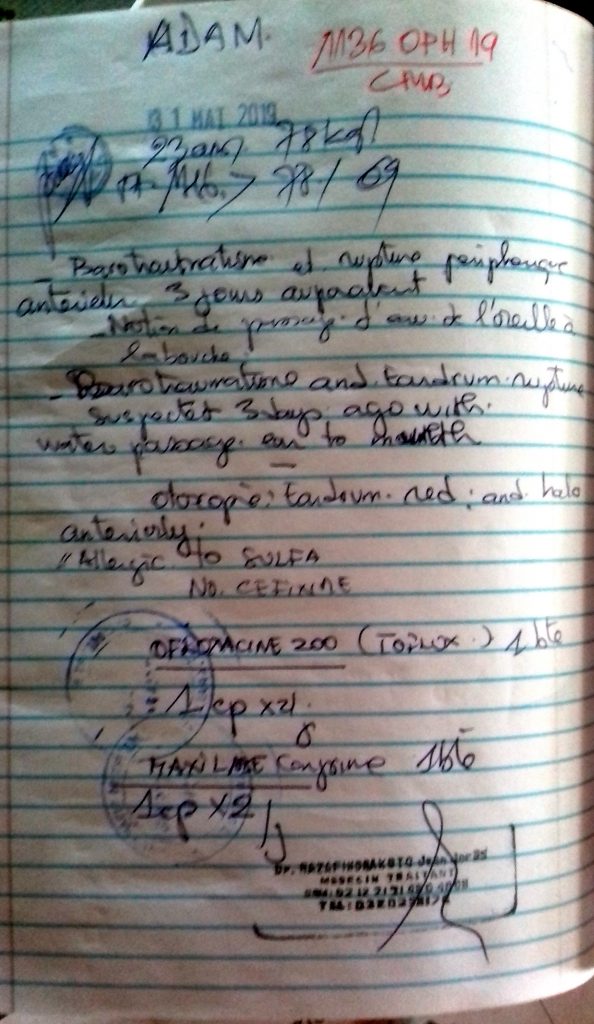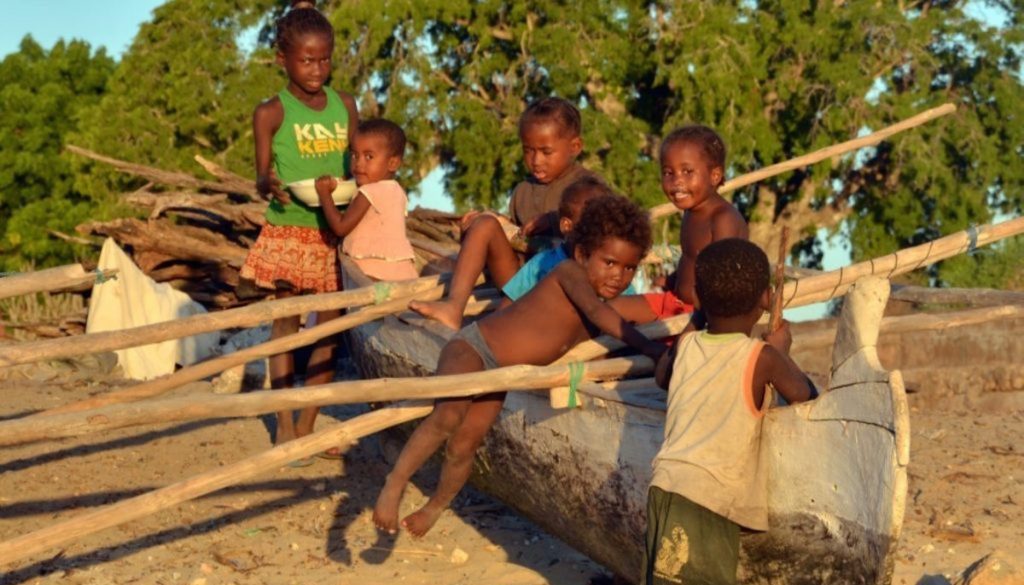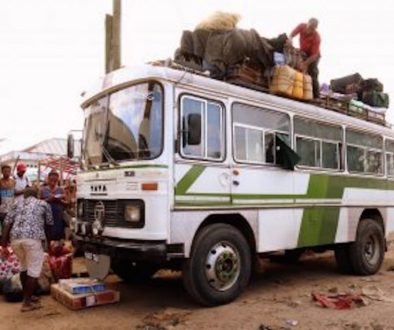•MAD-agascar
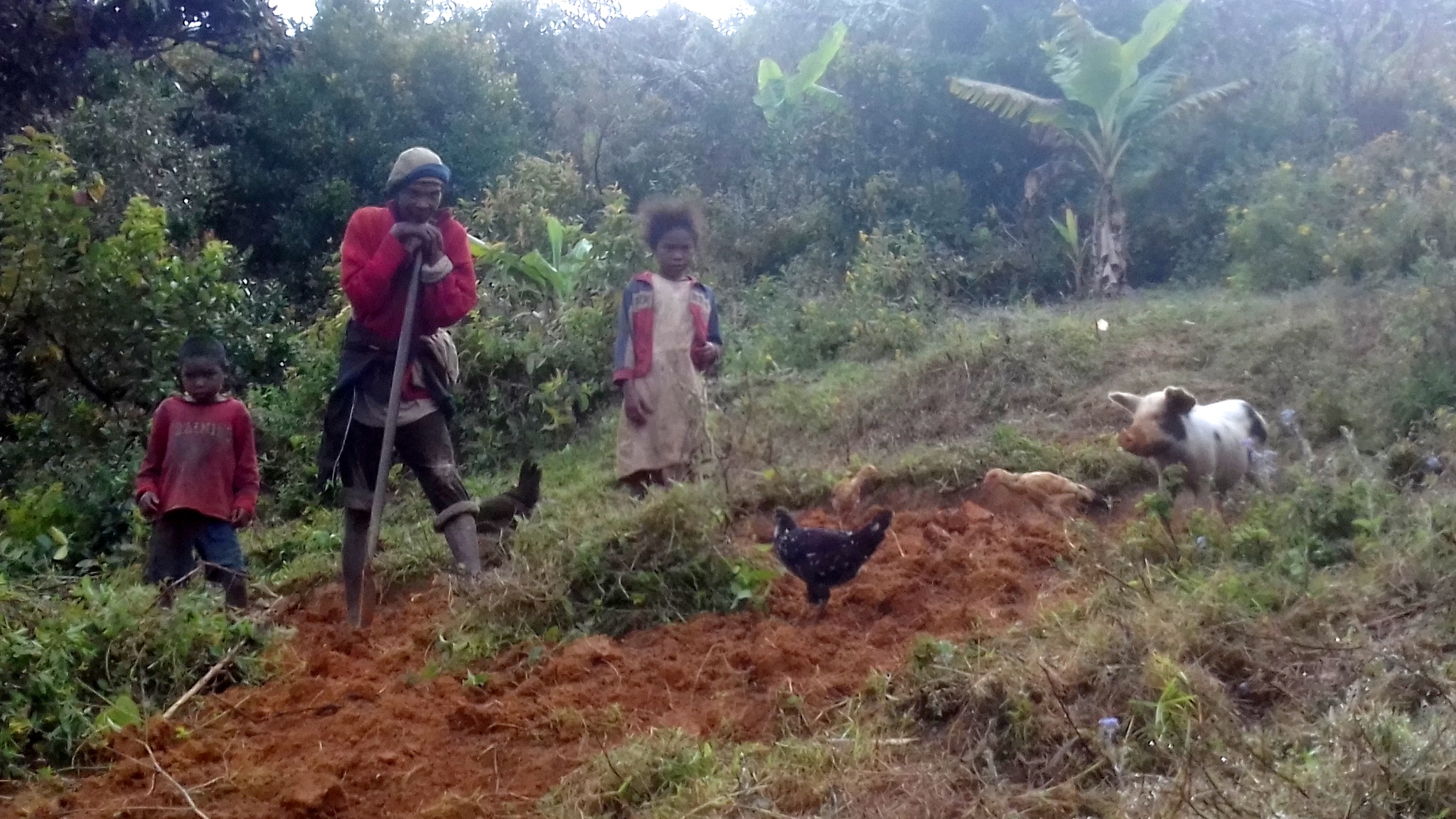
In May last year I began working for ReefDoctor, an NGO in Southwest Madagascar that focuses on land and marine conservation, combined with social development and education. If we go by economic earnings, Madagascar is one of the poorest countries in the world, so how do the ‘Gasy’ people get by?
Easy! Flip-flops can be used as fishing floats, footballs are made out of plastic bags and lots of string, bikes can be ridden with one pedal, sails are made out of old rice sacks, earrings out of wire, 26 people can fit in a mini bus (bring your own plank to make a seat between the seats), the door is jammed closed with a screwdriver, and all else imaginable, including goats and cows (allegedly, but yet unproven), go on the roof.
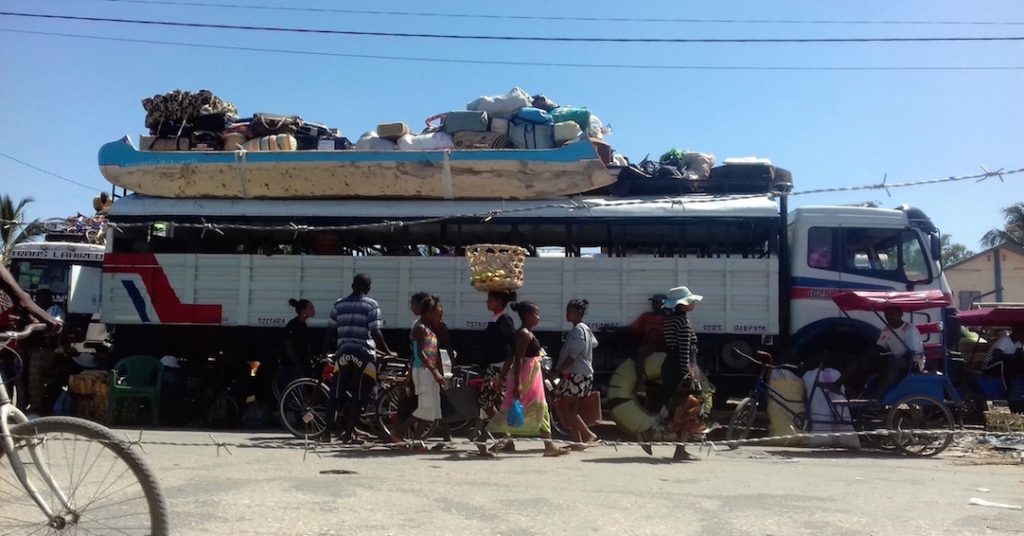
Still very much in my European mindset of ‘so much to do so little time’, I’m finding it hard to adjust to the rhythm of life here, where phones are recharged by using scratch cards, 24 cents at a time, and power and wifi are generator based. Things we all take for granted back home don’t yet apply here; bicarb. is counted out by the spoonful, and you buy cable ties by the unit.
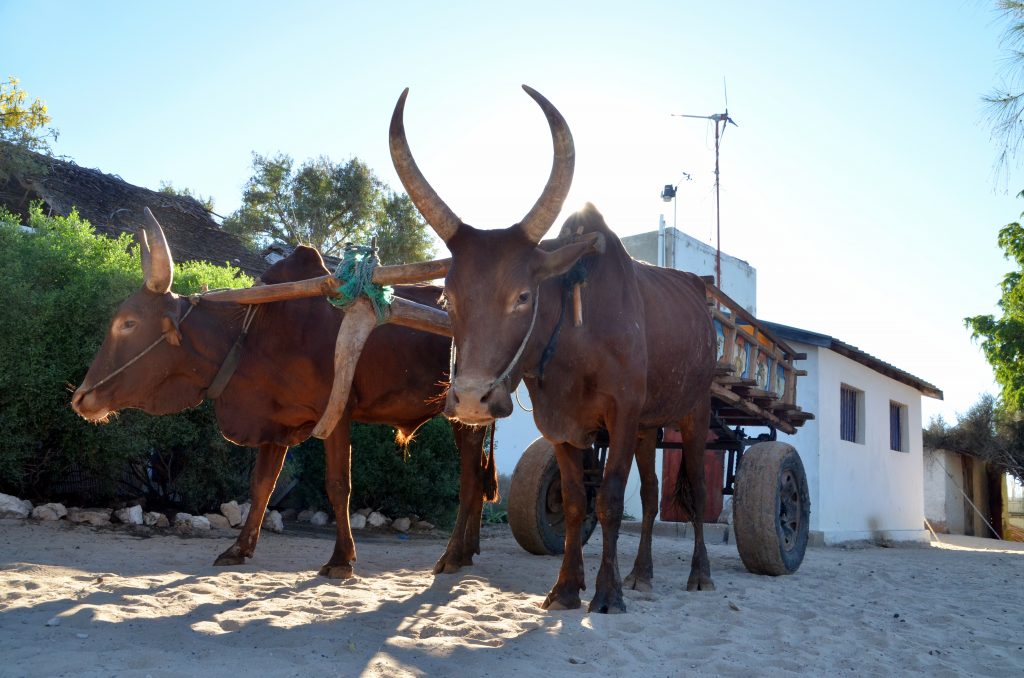
While many aspects of life are more complicated, in a fortunate twist, sometimes, without infrastructure, governments and regulations, solutions are more obvious and easily achieved- for 3.65e I have bought a mini solar panel, attached it to the roof of my hut with 1 individual cable tie (00000.1 cents), and now have 3 hours of free light of an evening, without paying any sun tax to anyone. Larger solar panels are used throughout camp and the nearby villages to power lights and annoyingly repetitive music at all hours of the night.
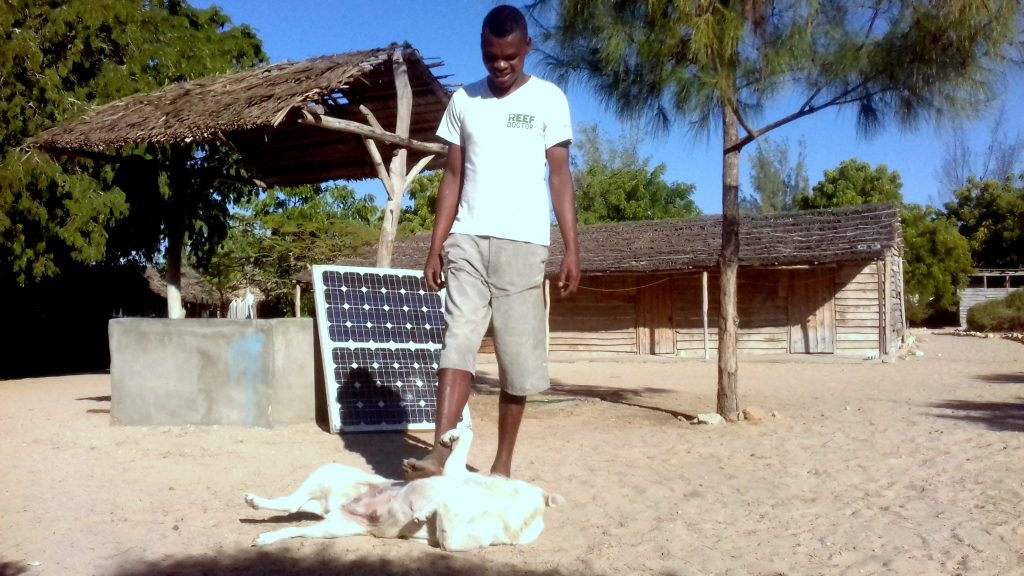
I’m NOT saying solar panels are ultimately a sustainable option for all mankinds’ power requirements, but merely want to highlight the simplicity of solutions when faced with no options (or governamental obstructions). Spain has recently been relieved of the obscene “tax on the sun”, which aimed to stop anyone bar Endesa supplying us with power. In fact, Madagascar seems to me the paragon of resourcefulness.
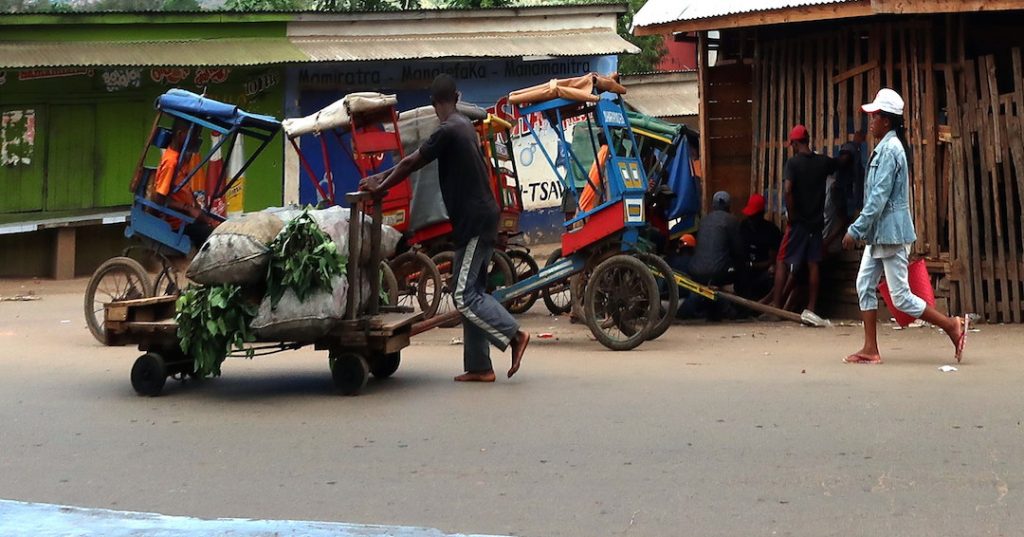
The burgeoning fast-food industry of Ifaty. Implanting a waste disposal programme
Folk here haven’t quite the trouble we have in Europe with fast food packaging and waste.
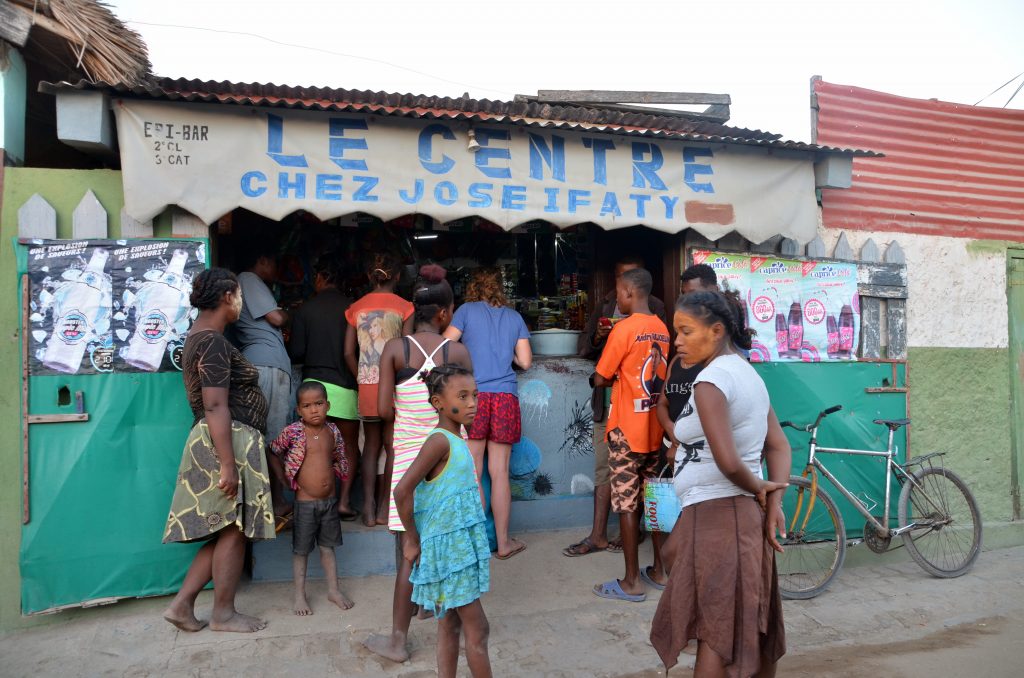
Reversing un-ecological practices is not such as issue, because silly needs as having straws and polystyrene food wrapping were never developed in the first place. We get our fish from food stalls plonked on a piece of paper from someone’s old school notebook, and get excited about weekend trips to the next village to visit ‘The Fridge Shop”. “The yoghurt lady” appears on camp some mornings to sell us homemade yoghurt, and returns in the evening to collect the pots. Bottle return schemes are firmly in place and all glass is returned to the pub. Wouldn’t it be wonderful if we were to reintroduce a milk round back home and use glass instead of plastic? Despite the colourful, querky, picture I’m painting, this is a place where there is rarely any food left over, and many small children die of malnutrition well before they are registered for school.
In contrast, in Menorca the large all-inclusive hotels throw away up to 6 wheelie bins a day of food leftovers, often untouched. Menorca, as a biosphere reserve, is heavily invested in recycling, because we have to be; such a small island, that sees its population more than double in the summer months, cannot afford to keep piling up landfill. We are currently generating over half a tonne of waste per person per year, of which we recycle only 19%. The rest does end up as landfill in Milà. We are very good at recycling glass, less so card and plastic, and worst of all, organic waste. Fortunately, the Consorci de Residus de Menorca is addressing food waste by working on door-to-door collection of organic leftovers from individual households, and has finally started a trial project with Hotel Capri in Mahón to see if collection could work with large hotels as well. This comes after extensive meetings with hotel management to find out how to best adapt the collection service to individual needs, within the framework of our infrastructure. Tailoring conservation effort to locally perceived needs, and providing relevant information on the topic, are absolutely vital steps. Failure to do so results in wasted time and money, with often embarrassingly unpredictable outcomes. As they found out in Madagascar; handing out mosquito nets to uninformed/unwilling fishing communities does NOT stop malaria, but does provide a new means of catching all but microscopic fish in these new free nets!
Joining forces with the village next door, Reef Doctor has set up a project to install a very much needed rubbish collection system in Ifaty. Currently, everything except glass is burnt, or dropped into piles on the ground, part of which is then inevitably blown into the sea. Reef Doctor met with the community elders and they themselves decided that they want a bin for each family, and a rubbish collection service. Bins would be delivered with information stickers explaining how to use them and what to put where. Bin men would also clean the surrounding beach and village streets. The rubbish would be sorted locally at the newly created waste management centre in Ifaty. ReefDoctor has been collecting data on rubbish from beach cleans and most of what volunteers find are land-originating clothes and plastics. These materials can be re-fashioned into purses and curios, hard plastics broken down into the infamous nurdles, and exported for re-use. Soft plastics can be squished into old water bottles to make Eco-bricks Further down the road in Belalanda, there is a recently-recovered rubbish plant that could receive our non-recyclable waste, and add it to their sealed landfill site. This is a one-year trial project, and if successful, the plan is to install it in other nearby coastal villages too. The project is in urgent need of funding and we have created a fundraiser page on Facebook.
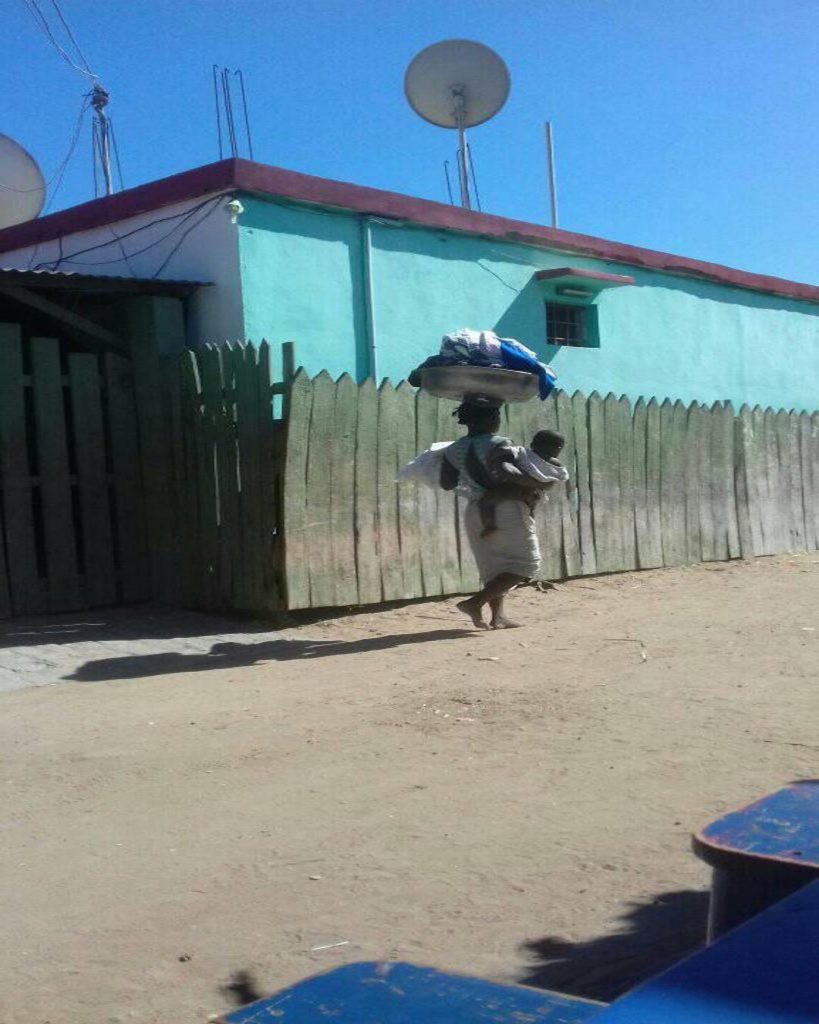
Law and Order
While some countries don’t have bins, in es Pinaret and on many Menorcan beaches, the councils actually removed our bins in an attempt to save money on collection, and teach us to take our own rubbish home instead. Unfortunately, humans don’t behave when there are no obvious negative consequences, and rubbish is often now just dumped at the beach at the mercy of the seagulls. I imagine we are the same the world over; we work with prizes and fines. Where information and education are clearly not enough, I’m excited that we now have a substantial law that promises to sort our behaviour out. Thanks to the new “Ley de Residuos y Suelos Contaminados de las Islas Baleares”, single – use plastics will be banned throughout the Balearics as of 2021. The Balearic Islands alone produce around 800.000.000 kilos of waste per year, one of the highest amounts in Spain, largely from hotels and tourism. The ban includes throw-away party plates, cups and forks, cotton buds, lollipop sticks and lighters. As anyone who has ever done a beach clean will know, these items make up large part of what we find. Currently, thin bags like those we put fruit and veg in are still allowed, yet as of 2021 any type or size of bag must be at least 50% recyclable, the list continues…Bin inspections are set to see who’s complying, and hefty fines are said to be imposed. By 2021 organic waste MUST be recycled, and both the Consell Insular and GOB run programmes on teaching you how to make your own compost.
The challenge is to get us to feel good about stepping out of our comfort zone, making an effort to invent ways to recycle, maybe ask our parents and grandparents what they used to do (or check what they still do in Madagascar) and feel proud of ourselves for trying to make a difference.
Oh, P.S. On this ‘Great Mad Island’ you even have to take your own notebook to the doctor to get a prescription! (I wonder if we could ever beat that?)
